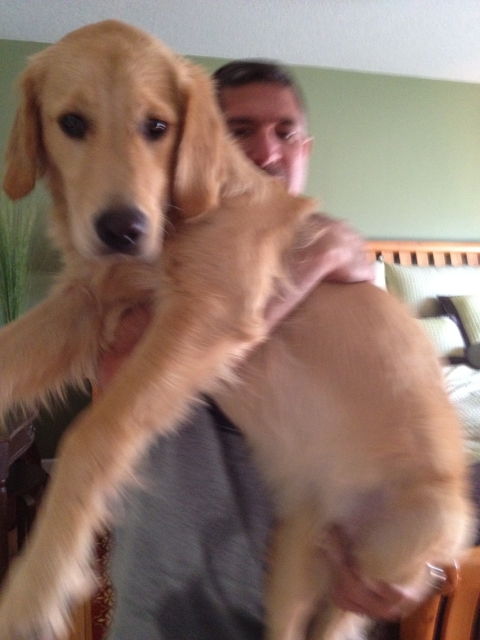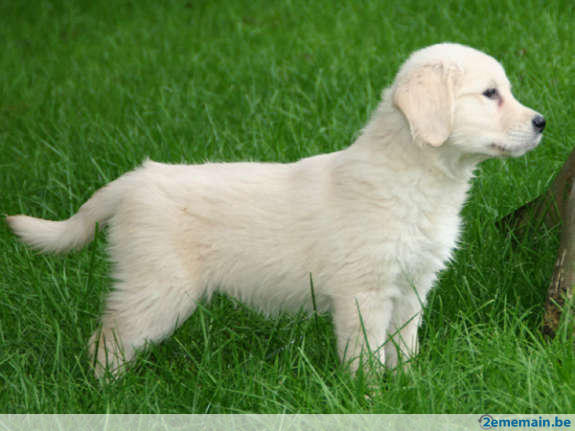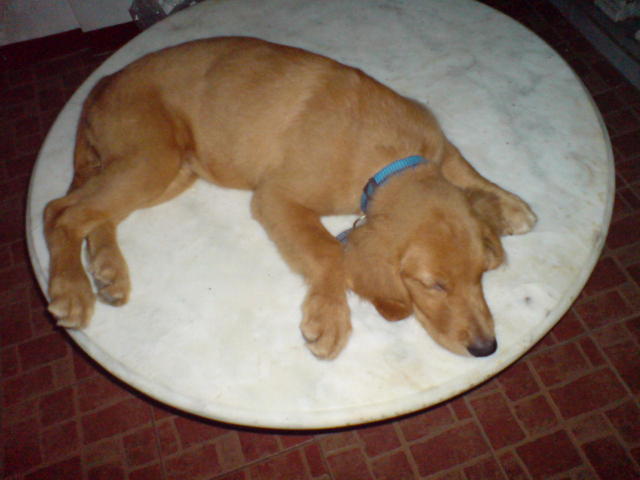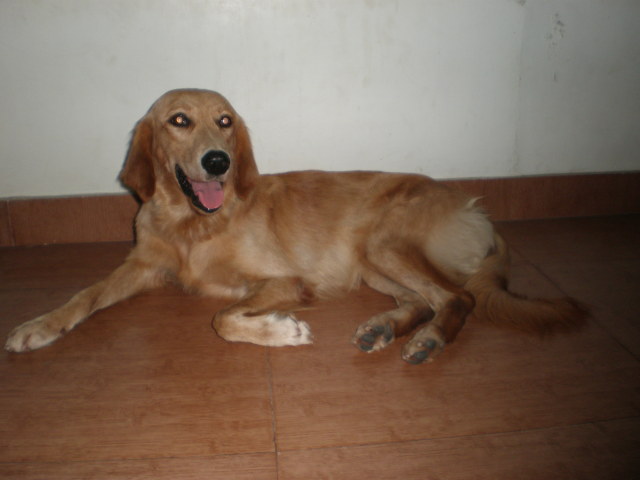QuestionWe have had our 8 week old pup for 1 week. When stopping him doing thing he is biting and growling aggressively at least 4 times a day. I have three kids 2 3 @ 4. Am I putting them at risk? he bit the 2 year old today in the face when she went to stroke him.
AnswerYoung Labs, which I know best, and other puppies tend to very bad about
biting. You see a litter of them, and all the ones that are awake are biting
another one or themselves. I am not even sure they realize that when they are
alone, if they quit biting, they would quit being bitten. At 3 to 4 months
they are getting their adult teeth, and it seems they spend every waking
moment biting or chewing. One thing you can do at that stage is to knot and wet a piece of cloth. Then freeze it. The cooling will soothe the gums. Only let the puppy have it when you are there to watch it. I maintain a Lab's favorite chew toy is another
Lab. Otherwise they settle for any person they can. They keep hoping to find
one that won't yelp, jerk their hand away, and leave.
You just have to keep on correcting them, hundreds of times, not dozens.
Provide sturdy, safe toys such as Kongs and Nylabones. Avoid things they can
chew pieces off and choke on them. Keep them away from electrical cords.
Crates are essential for most young Labs and other dogs.
The pet stores are full of toys that many dogs will quickly chew up into
pieces they could choke on or cause intestinal blockages. If you are not
there to watch, stick to sturdy stuff such as Nylabones and Kongs. Keep a
close eye on chew toys and quickly discard anything that is coming apart in
pieces. Rawhide is especially bad because it swells after being swallowed.
I don't trust any of the consumable chews. The dogs just gnaw them down to a
dangerous size too quickly. These problems are the worst with, but not
limited to, large, aggressive chewers such as Labs.
The key to most behavior problems is approaching things using the dog's natural instincts. Dogs see all the people and dogs in the household as a pack with each having their own rank in the pack and a top dog. Life is much easier if the 2 legged pack members outrank the 4 legged ones. You can learn to play the role of top dog by reading some books or going to a good obedience class. A good obedience class or book is about you being top dog, not about rewarding standard commands with a treat. Start at http://www.dogsbestfriend.com/ For more on being top dog, see http://www.dogbreedinfo.com./topdogrules.htm
''Elevation for small puppies: Sit on the floor and gently put your hands around your pup's middle, below his front legs, and lift him up. He is facing you. Hold him for 15 seconds. Repeat until he no longer struggles. If he is past 10-12 weeks, lift his front feet off the ground, but don't pick him up.
Cradling for small puppies: Hold your puppy gently on his back, as you would cradle a small baby. If he struggles, hold him firmly until he quiets for 10-15 seconds. With larger pups, you can do this as your sit on the floor, with your pup between your legs.
Quiet lying down: Place your pup on the floor on his side, with all 4 legs pointing away from you. Use your hands on his neck/shoulder area and middle, to hold him in this position. When he is quiet, praise him. Lengthen the time that you keep him quietly in this position. When he accepts this position well, handle his paws and muzzle, while keeping him quiet.''
The quotes mean this isn't my original work. It is copied from my Puppy Raising Manual. I have long used these or minor variations of them, and they are very effective. You may want to give him a belly rub while he is on his back too. Helps bonding. There is a big difference between him rolling over and demanding a belly rub, and you choosing a time to roll him over and rub his belly. The latter cements your place as pack leader.

 Anxiety? golden retreiver ; valerian time release canine dosage :
QuestionMy Golden is panting, pacing and pawing excessi
Anxiety? golden retreiver ; valerian time release canine dosage :
QuestionMy Golden is panting, pacing and pawing excessi
 My 7 month golden retriever
Question
Mako
Hi,
My 7 month golden retriever pu
My 7 month golden retriever
Question
Mako
Hi,
My 7 month golden retriever pu
 Golden retriever
QuestionGolden retriever puppy
QUESTION: Hello,
Golden retriever
QuestionGolden retriever puppy
QUESTION: Hello,
 dog licking legs
QuestionI have a blue tice walker that has licked holes
dog licking legs
QuestionI have a blue tice walker that has licked holes
 Food for a 8 months GR
QuestionRini
QUESTION: I have a 8 months old fem
Food for a 8 months GR
QuestionRini
QUESTION: I have a 8 months old fem